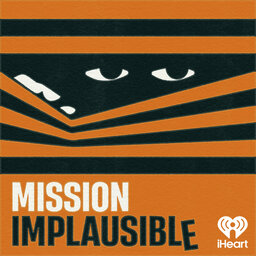Religion and Conspiracy Theories (with Drew McCoy) - Part 1
Drew McCoy, aka Genetically Modified Skeptic, is a fundamentalist Evangelical Christian turned agnostic/atheist. With John, Jerry and Adam, they explore the position of conspiracy theories throughout religion in general.
In 1 playlist(s)
Mission Implausible: Ex-CIA Officers on Conspiracy Theories
Do you want to know the truth behind the world’s wildest conspiracy theories? Former CIA officers Jo…Social links
Follow podcast
Recent clips

What Ghislaine Maxwell Knows and Why She’s Being Protected (with Tara Palmeri & Adam Davidson)
33:16

The Hawaiian Cult that raised Tulsi Gabbard (with Christine Gralow)
37:05

Alex Jones and the Conspiracy Economy (with Jordan Holmes)
37:13
 Mission Implausible: Ex-CIA Officers on Conspiracy Theories
Mission Implausible: Ex-CIA Officers on Conspiracy Theories